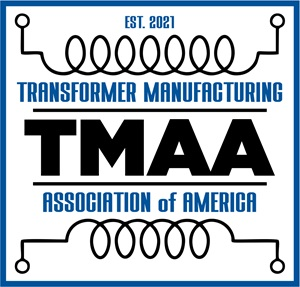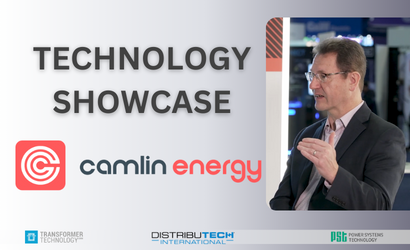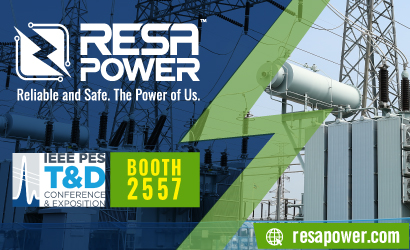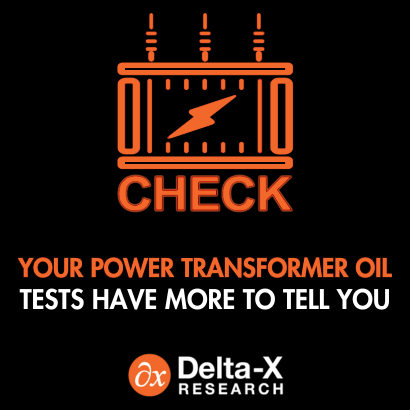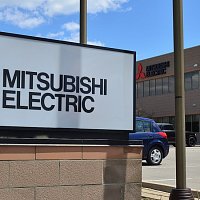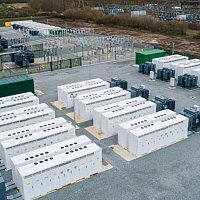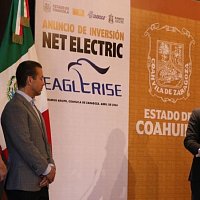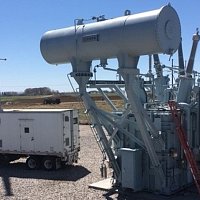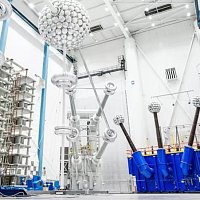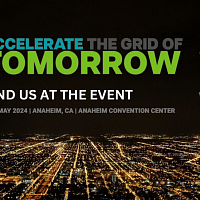
Interview with JOE DONOVAN
Executive Director, TMAA
FEATURE INTERVIEW
TMAA's shift from a reactive to a proactive organization involves collaborating with various stakeholders, including policymakers, to address pressing issues.
Alan Ross
My guest is Joe Donovan. We've done this a few times, Joe, and you're the Executive Director of TMAA, Transformer Manufacturing Association of America. Welcome, thank you for joining me.
Joe Donovan
I'm really excited to be here. It's good to see you again.
AR
I want to throw a problem out at you. Two weeks ago, at an event that's called Renewable Energy +, 40,000 people from the storage industry, the solar industry and other industries got together in Las Vegas. It was wonderful to see something so unique because we've been talking about it for a long time. It is going to change the generation footprint for every utility out there. Here's the problem, and we're finding this out from utilities and from people who do research in this area. When you create an inverter-based system where the transformer that was a step-down transformer now has to be a step-everywhere, it's going to take power from my son's house, and when he wants to give power, he needs to be paid for it, and then we need to figure out how to get it through their distribution network to elsewhere. It's a mess out there. It is creating huge amounts of transients and harmonics, which are destroying all electrical equipment at an increasingly alarming rate, especially transformers.
Consequently, one of the things I love about TMAA is you're not just transformer manufacturer. There are service companies, service providers., a whole other group of people, vendors, etc., in the industry that you basically said, Join us, become part of our group, and let's come together to, number one, lobby for what's in our best interest for TMAA. Number two, let's start looking at some of these longer-term problems and see if we can solve them. I throw that in your lap and say: What have you been doing lately, Joe?
JD
Well, that and then some. It's interesting. When I first started working in the transformer sector 10 years or so ago, we were basically looking at the most unsexy piece of equipment out there. It's pretty much the same thing it's been for 80 years. You've got big step-up, big step-down transformers on the network. It's been carrying the same load, serving the same customers, serving the same interstate system. Kind of boring, right? Ten years fast forward, and all of a sudden, we've got not just issues with supply chain of transformer manufacturers and its vendors, but now you start adding in these renewable generations sources, these bi-directional net metering and other new projects and aspects of the core system, you've got a whole different network now and a whole different slate of issues that are augmenting not only the need to modernize the grid and therefore increasing the demand on transformers, but also you then add this layer of transition of the grid to a non-carbon based or renewable clean tech, whatever buzzwords you want to use to describe the new generation. That adds a whole other layer of demand onto a pretty static supply, at least on a domestic basis.
That creates a lot of issues. Right now, we're hearing from utilities about problems meeting demand, lead times going from 3 months to 12 months, cost increasing. They're absolutely right. There are important underlying reasons why that is the case. That's going to be different from a distribution transformer than a medium-size or a large power transformer. Some of the same core issues, but the answers are going to be substantially different. That's where I've been spending a lot of my time and where the TMAA has really been focused lately – dealing with setting up communications with other interested trade groups, be it customers, be it utilities, renewable developers, DOE, Department of Commerce, White House. We've been all over the place trying to spread the message and to coordinate a more fulsome response. A lot of that is data-driven, and we, candidly, just don't have a lot of that data right now.
That's where I've been spending a lot of my time and where the TMAA has really been focused lately – dealing with setting up communications with other interested trade groups, be it customers, be it utilities, renewable developers, DOE, Department of Commerce, White House.
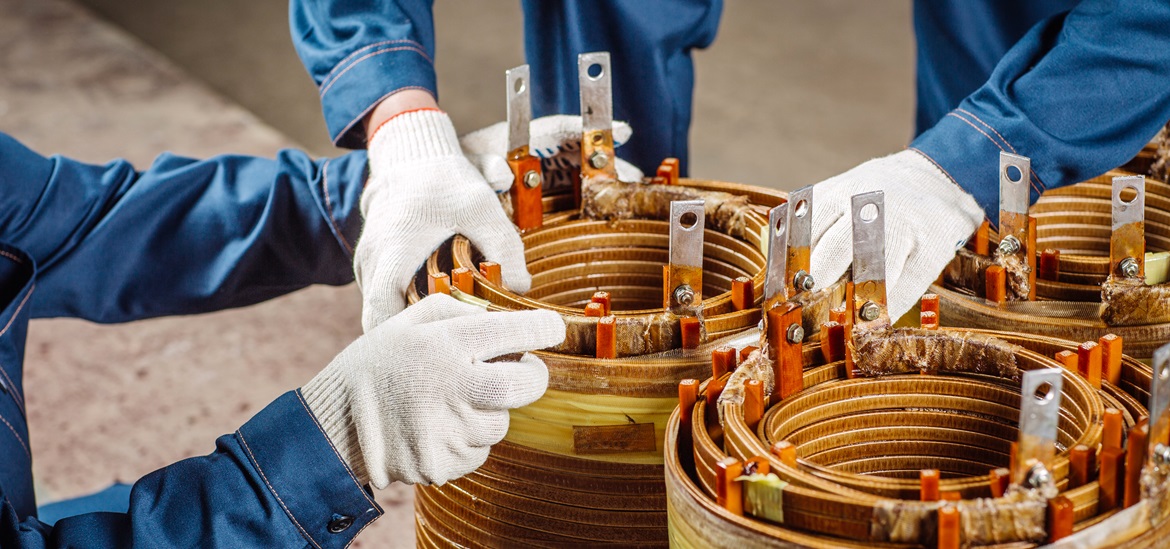
AR
Love when you said that, a more fulsome response. That's a great word. It encompasses a lot more – it is both wholesome and full.
Question for you. When you started with TMAA, there was a certain perspective of who you'd be. Share with me where you see it now. Where do things that you didn't expect come from?
JD
Yes, our birthright at TMAA is from an ad-hoc coalition of transformer manufacturers, domestic-based transformer manufacturers, focusing primarily on medium and large transformers. We were dealing with a lot of ad-hoc issues, particularly tariff issues, Section 232, some anti-dumping issues. We had this ad-hoc coalition, and we'd get together every once in a while, and focus on an issue. It struck me, and more importantly, it struck the founding members of the TMAA that we need to get in front of this issue. We're perpetually in a reactive mode, and we need to get an organization put together that can be proactive and DC-based, because that's where most of the issues we deal with stem. A voice of not just the manufacturers, but also the supply chain that feeds the manufacturers, the customers that buy from the manufacturers, more of a broad approach to address the issues that are impacting all of our members. Where we started out as mainly medium and large power transformer interests, we now have medium, large transformer interests, distribution transformer interests, supply chain vendors that feed into all those transformers. We have customers. We're coordinating quite a bit with utility trade organizations on some of the issues.
By the way, it is our second birthday today. We were founded two years ago today. Within that two-year span, our footprint has increased substantially, particularly here in DC. We can go through some of the projects and initiatives we're working on now that will hopefully mitigate some of the issues that are out there.
Where we started out as mainly medium and large power transformer interests, we now have medium, large transformer interests, distribution transformer interests, supply chain vendors that feed into all those transformers.
AR
Well, you will mitigate them. And then you know what will happen? There are a whole sea change of issues coming up that you're going to have to, as an organization, deal with. I think you said something that, again, I love about TMAA because I've been around the transformer industry now for about 20 years. As you said, we were always backward thinking because you know what? They were big old beasts that didn't wear out and everybody was happy. Well, we're now wearing them out. The grid is changing more rapidly than most people know. Will we get to a fully renewable energy grid? I don't know. Maybe not in my lifetime, but we are significantly further along that path than we've ever been. Nobody's trying to open up new coal fired plants anymore, right? There's been a lot of change, and there will be a continuous amount of change that will be affected by the heart of the system, the transformer. That's one of the things I love about it. One of our very first magazine issues had a heart, and the transformer was in the shape of a heart. It said transformer, the heart of the system. It has become more apparent to me today than ever that that's the case. If the system is changing, then you got to look at how the heart changes, how manufacturing has to change.
Talk a little bit about what's happening in Washington. What are the initiatives that you're involved in? You said you were just recently at the DOE. Talk about what other things are going on there that would interest our readers.
JD
DC is such a political beast, and the biggest political beast right now that's getting the most headlines is the issue of distribution transformers, and the supply chain issue associated with that. TMAA has been intimately involved in discussions amongst the White House advisors, DOE, DOC, Labor, and other organizations that have acronyms, I don't even know what they mean. That is by far the most important thing. One of the conversations I've had recently is with the Office of Electricity at DOE. There's an assistant secretary, Gene Rodriguez, who's doing a phenomenal job of getting out there and trying to understand the underlying core issues that are impacting the distribution transformers. And he's smart enough to know that what's going to impact the distribution transformer sector now very likely will impact the medium and large in the future because the issues will bleed out. He's identified a working group that we've been privileged to be a part of, consisting of utilities, policymakers within DOE and other agencies, and the manufacturing sector. We've been very pleased to participate in those discussions and look forward to continuing those. That's been a large portion of my time right now. Truth be told, it is a lot of education, both for myself and then trying to educate the policymakers.
It's been very interesting. Everyone in the last four administrations has said transformers are key to national security, right? There are executive orders to that effect, as well as all sorts of DOE reports. They're absolutely right. Question is, what does that mean? If it's key to national security, is it just the transformer, or is it all the core components and materials we need to make a transformer that is also key to national security? You can't have one without the other. We've got a transformer shortage. What are the causes of that? Labor is one, but the materials and the components that we need to make the transformer is just as important.
We've got a transformer shortage. What are the causes of that? Labor is one, but the materials and the components that we need to make the transformer is just as important.
Our message to the supply chain is: TMAA is your face right now to some very senior folks. To the extent that you are needing assistance with addressing some of your production capacity issues or incentives, the 48C manufacturing incentives, and other programs, we're the interface between you and the federal regulators and administrators when it comes to these issues. A lot of time has been spent on that, and just identifying where the weaknesses are, and focusing attention on how to address those weaknesses, either domestically, by increasing capacity, or finding material sources abroad and making sure we have the right trade policies in place to ensure that we have the ability to meet the demand.
Our message to the supply chain is: TMAA is your face right now to some very senior folks. To the extent that you are needing assistance with addressing some of your production capacity issues or incentives, the 48C manufacturing incentives, and other programs, we're the interface between you and the federal regulators and administrators when it comes to these issues.
AR
That's a fulsome responsibility. What have you got coming up? What are you looking at in the very short term for future?
JD
Well, I'm really excited. Actually, in two weeks from this Friday, the TMAA is having its annual meeting here in DC, and all of our members will be all in one spot for the first time since the pandemic. We're going sit down and really think through what the TMAA will look like in five years. What do we need to get there? Who do we need to get involved as members? Who do we need to recruit? And that's going to be a large focus of my 2024.
I'd like to double my membership at a minimum, get more representation from the distribution transformer manufacturers and their supply chains. I would love to have a couple of large utilities come on board so we get their direct perspective as we start to advocate for policies, making sure that what we're saying is consistent with what our customers really need and what our customers really want. That's a big priority for me going into the next year.
AR
The only problem I have with that meeting is I wish I were able to attend and listen and record and meet some people. It would have been an incredible opportunity for editorial content of the future leaders in the marketplace. When you have the next one, invite me. I'll come.
JD
I'll get you on the agenda. You can have face time with the full crowd.
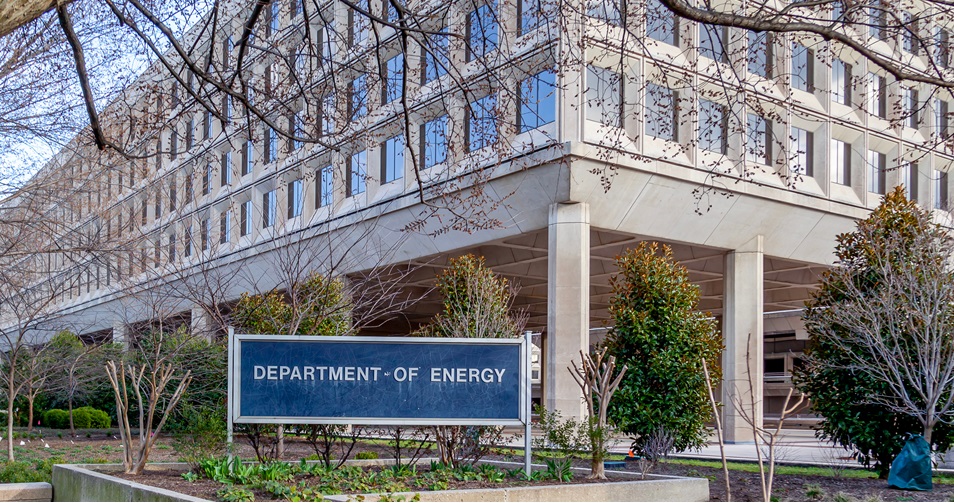
AR
This has been a great catch-up. I want to do this on a more frequent basis. I know you've got a lot going on, and I want to make sure that we can help become part of the voice for TMAA. I keep seeing problems, and I love the fact that you guys are bringing some tremendous solutions to the marketplace. There's a lot of money in Washington right now being spent on electrical systems, and a lot of it will probably be spent poorly. It's not Washington's fault, it's our fault. When we don't give them good direction, or we don't connect the industry with the policymakers, they're not writing policy just to blindly say, this is stupid. I know a couple of people at DOE that are brilliant and came from the utility industry and are trying to solve problems, right? I think you guys are an advocate in DC for both the DOE, the White House, all of the acronym-named groups, which is very, very important. Thank you for what you're doing. Let's stay in touch.
JD
Absolutely. I really do appreciate that, and I appreciate your voice of confidence in the TMAA and myself as its executive director. I look forward to trying to get some answers out there. Unfortunately, you're right. It's a target-rich environment here in DC, because there's a lot of policies being derived based on incorrect assumptions, incorrect political philosophies. I just found out today that there's some discussions about the Buy America percentages being adjusted to require 100% domestic steel in order to qualify for the Buy America credit, which is just physically impossible at this point.
I just found out today that there's some discussions about the Buy America percentages being adjusted to require 100% domestic steel in order to qualify for the Buy America credit, which is just physically impossible at this point.
AR
It's going to be disastrous to the industry. That is so counterproductive to where the problems are that we're trying to solve, and now I'm with you. But that's your job to fix, Joe.
JD
Yes, indeed. We're going to try.
AR
All right. Thank you, my friend. We'll talk later.
JD
Thank you. I look forward to the next chat.
Powered by
